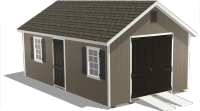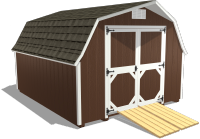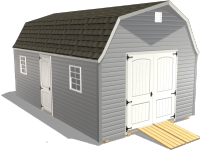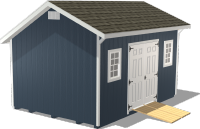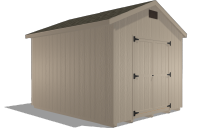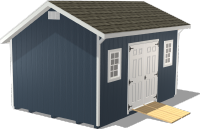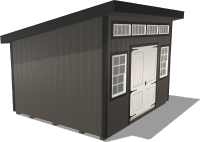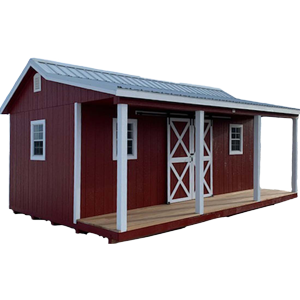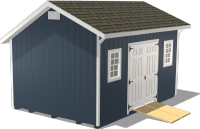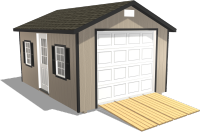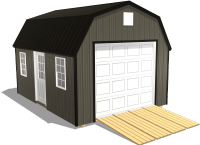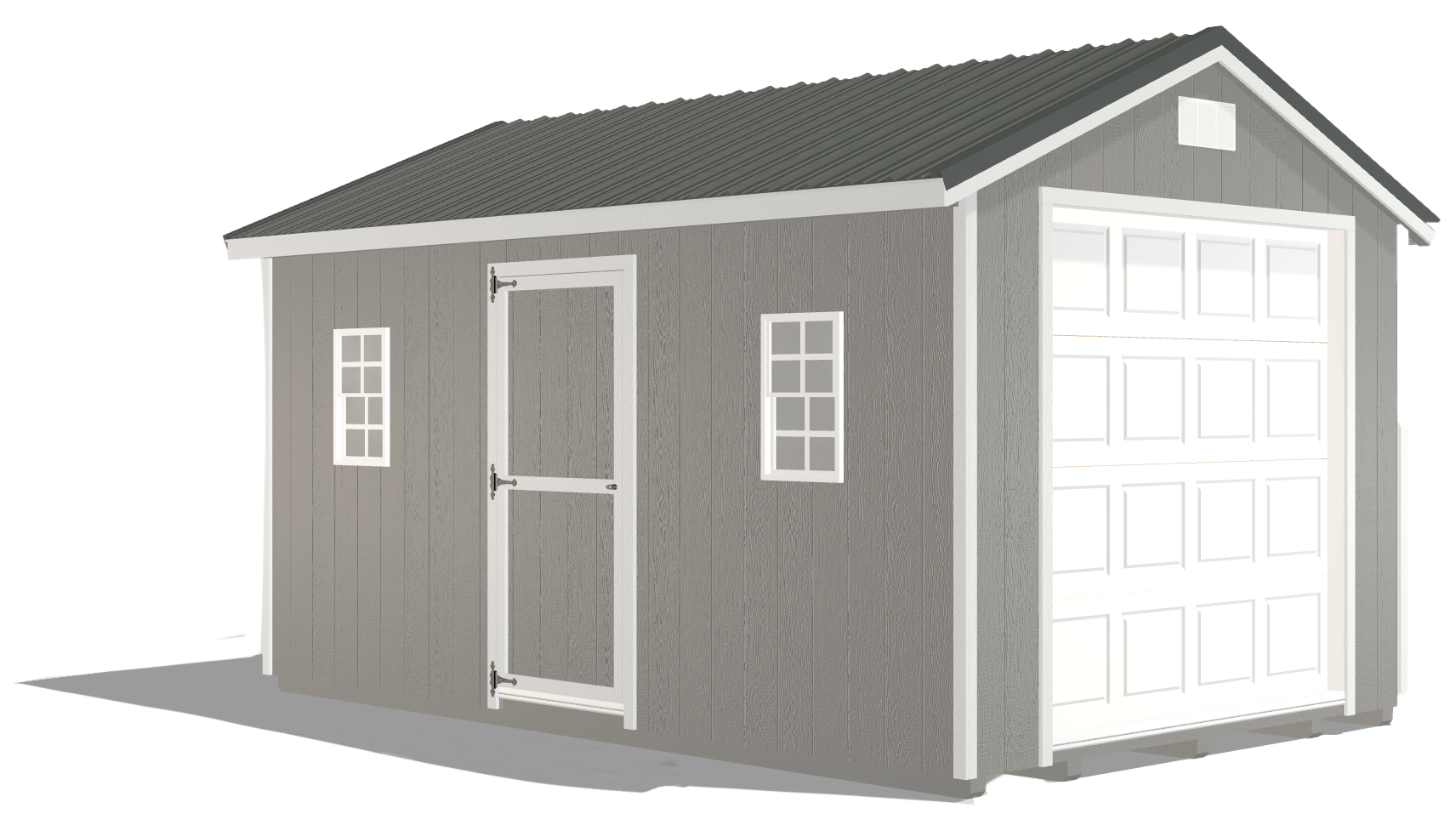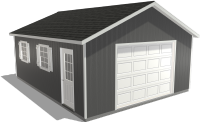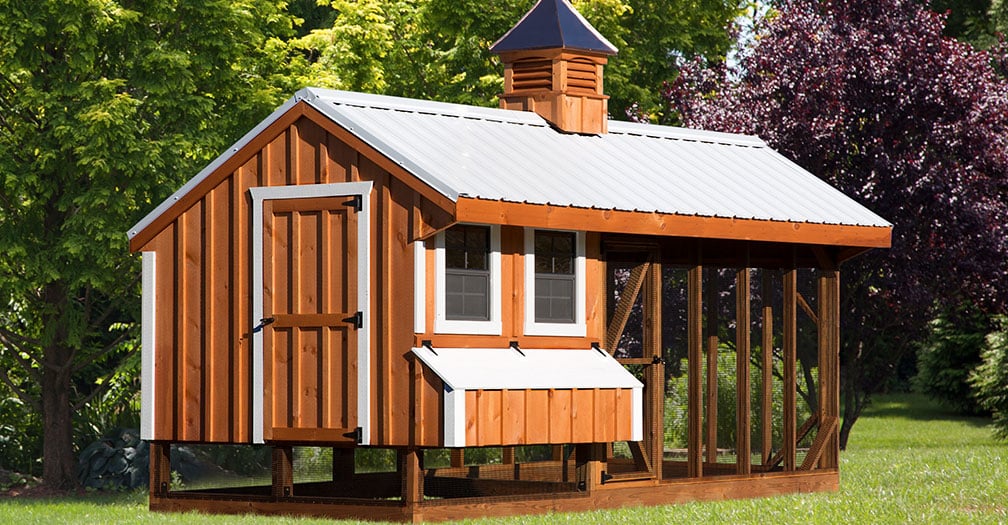Finding the Best-fit Chicken Coop for Your Flock
by Dakota Storage Buildings, on September 23, 2020
Keep your hens happy and healthy by providing the best at-home chicken coop.
Backyard chickens have become popular, especially for those who own farmettes or are into homesteading. There's a lot of chicken-raising information out there, which makes research overwhelming at first. Our guide, Evaluating Chicken Coops: Finding the Best-fit for Your Flock, addresses what chickens need to be healthy and happy, the key features that every coop should include, and available coop options. To make information gathering easier, start with this helpful overview.
Chicken Coop Fundamentals
Every backyard chicken needs a place to call home — a haven for egg-laying and resting as well as safety from predators and protection from the blistering sun, torrential rain, and freezing snow.
Here are a few fundamentals that every chicken needs wherever they live.
- Space. Adequate space for birds to cohabit peacefully is essential. If they are crowded together or have to compete for space, they're likely to start anti-social and aggressive behaviors like feather pecking and wound inflicting. Once excessive actions start, it can be difficult to keep it from spreading throughout the flock, and if left unchecked, can turn into cannibalism.
While hens naturally set up a social hierarchy (or pecking order), destructive behavior can become abnormally heightened during the winter when they're bored due to reduced egg-laying or when there's competition for limited resources like food, water, or roost space.
Having the right size coop and outdoor run for the number of chickens you own will be the difference between happy hens and cheerless chickens.
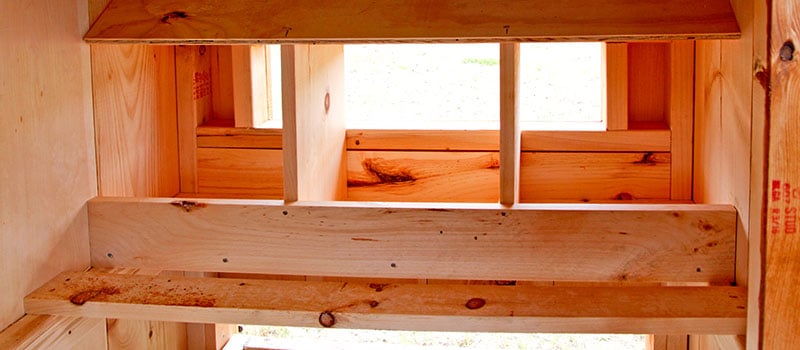
- Ventilation. Chicken coops need to be ventilated all the time — day and night, summer through winter. Coops should be cool in the summer and dry in the winter. Correct ventilation is crucial when it comes to temperature and air regulation. A good flow of air is the best way to keep chickens healthy.
Chickens generate lots of water vapor from both their breath and excrement, creating humanity in the coop. High humidity — particularly in cold weather — makes chickens more susceptible to respiratory illness and frostbite. Proper ventilation will remove this threatening moisture. Most chicken breeds can withstand surprisingly cold temperatures without getting frostbite as long as the air inside the coop is dry.
Good ventilation is also necessary to remove heat from the coop during warmer weather. Chickens do best in temperatures below 75°F and start to suffer above 90°F, so ventilation is needed to keep the coop at least as cool as the outside air.
- Security. Providing a haven — coop and run included — for your flock keeps them protected and provides a sense of safety. Protecting your flock from potential predators is a crucial aspect of owning and raising chickens. Due to chickens' immobility and somewhat docile nature, they serve as easy prey for a number of predators, such as foxes, raccoons, opossums, and hawks.
A few ways to ensure security include:
Inspecting fences and walls for gaps
- Checking the roof, frames, doors, and windows for structural weakness
- Minimizing waste near your chickens
- Locking up your chicken feed when it’s not being used
Many predators are not initially drawn to chicken coops because of the chickens, but by other food sources, such as feed or trash.
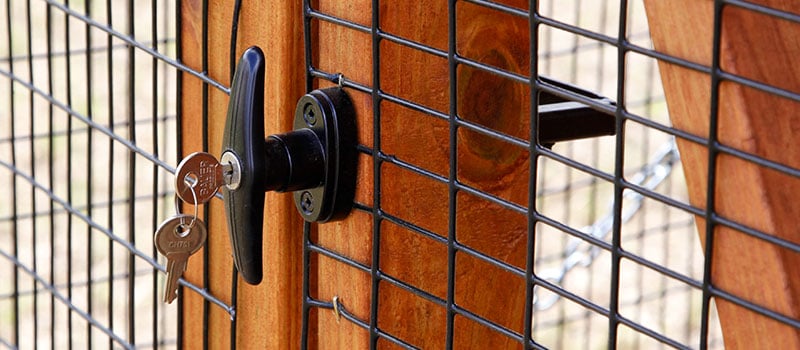
- Comfort. Your chicken coop needs to protect your flock from the elements of nature. From raging winds to blistering heat to downpours, you want your chickens to remain comfortable. The coop should be water-resistant . . . there is nothing more miserable than a wet chicken.
Happy chickens are active: scratching around in the grass, laying in the sun, and taking dirt baths to keep themselves free of parasites.
Heat can cause additional stress. Heat stress can damage organs, cause egg deformation, and even death. Ensuring your chickens have 24/7 access to cool drinking water will help to regulate their temperature from the inside out.
Providing comfort for chickens also includes access to nesting boxes — a private place to deposit eggs — and roosts for off-the-floor sleeping. We’ll take a little more about each of those in the next section.
Chicken Coop Features
In addition to the fundamentals that every chicken needs wherever they live, there are a few features that every coop should include. Together these features create an ideal home for any chicken, no matter the breed.
As you look at chicken coops, make sure the one you choose has each of these features.
- Run. Even though the windows allow sunlight in and vents encourage airflow, coops need an outside area for chickens to move freely — that's where the run comes into play. Enclosed runs keep chickens safe from predators and your landscaping safe from your chickens.
- Nesting Boxes. Give your hens a clean, dedicated space for egg-laying, and you'll get high-quality eggs. The rule of thumb is to provide one nesting box for every 3-4 hens, but it never hurts to have more. No matter how many you have, be aware that there's always a favorite box that the chickens will argue over.
- Roost. Chickens like to sleep up off the ground at night. Roosts provide the perching space they need for a good night's sleep. Although some chickens prefer to be by themselves, most sleep next to one another on the same roost for balance and warmth during cold weather.
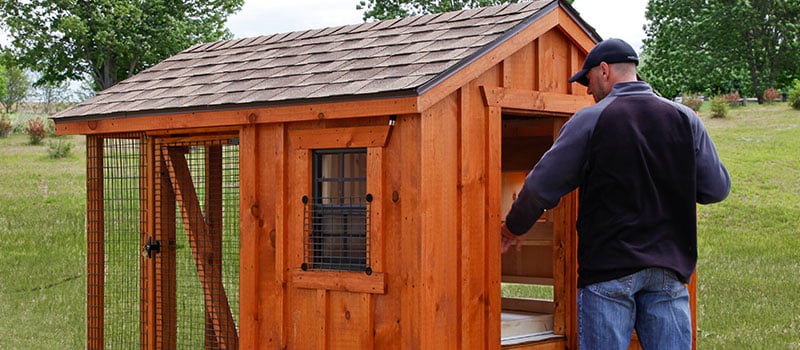
Summary
This post addresses chicken coop fundamentals and important coop features — but there’s so much more to discover. Download our guide to dig deeper into each of these aspects and more. The guide even answers some of the most commonly asked questions, including: Should I build or buy a coop? What coop size is right for my chickens? Where should my chicken coop be placed?
Ready to raise healthy and happy chicken?
Read more about backyard chicken coops.
Explore our chicken coops.




